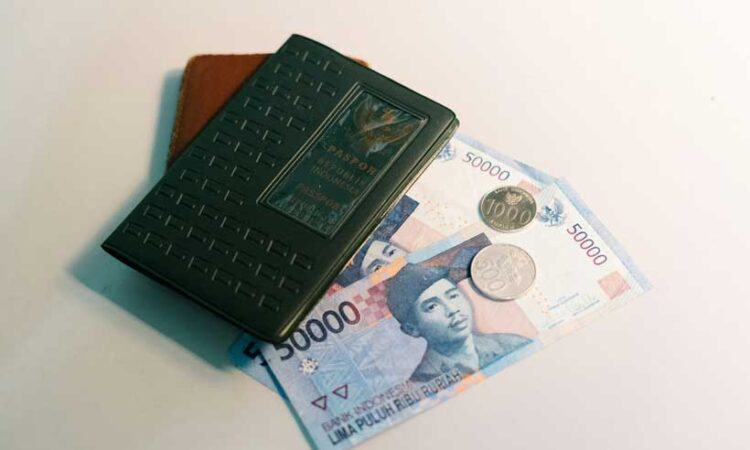Reducing Risk, Boosting Trade: The Case for Indonesia’s Local Currency Settlement Agreements

The U.S. Dollar is a standard reference for world currency values, and the World Trade Organization (WTO), the International Monetary Fund (IMF), and the World Bank have agreed to incorporate it as one of the international currencies in their payment systems for nearly all bilateral trade transactions between countries. It also applies to Indonesia’s bilateral trade system with a variety of trading partner countries during its development. For instance, in order to engage in trade transactions with entrepreneurs from Thailand, Indonesian entrepreneurs must first convert the Rupiah currency into USD as a legal tender for trade transactions. Afterwards, they convert the USD into Thai Baht, and the same process also applies in the opposite direction. This will undoubtedly reduce the efficiency of the trade process between the two countries, as the conversion of each country’s currency into USD takes a significant amount of time. Additionally, this process will bolster the value of the USD currency, thereby indirectly reducing the value of a country’s local currency.
According to Bank Indonesia (BI), over 90% of Indonesia’s trade transactions, both within and outside of Asia, still use the USD currency. The USD is the primary settlement currency in trade and investment transactions, resulting in a significant dependence on the USD in Indonesia’s domestic foreign exchange market. The Rupiah currency more susceptible to global shocks, such as the current pandemic, due to the high level of USD utilization. Additionally, the Rupiah’s exchange rate volatility in relation to the USD will have a detrimental impact on inflation and price stability, potentially disrupting the operations of Indonesian business actors involved in foreign debt and trade. Consequently, Bank Indonesia is committed to promoting the growth of non-USD financial market activities in a variety of trade and foreign investment transactions in Indonesia in order to attain and sustain the stability of the Rupiah exchange rate.
Bank Indonesia (BI) implemented a cooperative framework known as Local Currency Settlement (LCS) in order to promote the widespread use of local currencies. Bank Indonesia (BI) is implementing this as a preliminary measure towards the direct resolution of trade and investment transactions with a variety of trading partner countries. Local currency settlement is a bilateral transaction settlement procedure that involves the use of each country’s currency within its respective territorial jurisdiction.
It is imperative to reduce the USD’s dominance in regional trade and investment by utilizing local currencies, which is one of the appropriate measures to mitigate the effects of US monetary and financial policies. Indonesia and its trading partners are believed to derive numerous advantages from the implementation of the local currency settlement policy. This collaboration enables the local currency of each partner country to be used in all bilateral trade and investment transactions. The two countries will be able to decrease their reliance on the United States dollar through local currency settlement cooperation. This will eliminate the need to exchange their currencies into dollars that was previously necessary. Indonesia has established a local currency settlement cooperation agreement with four countries, namely Malaysia, Thailand, Japan, and China, as reported by CNBC Indonesia (2021).
Bank Indonesia (BI), in collaboration with the central banks of each partner country, has designated numerous national institutions as Appointed Cross Currency Dealers (ACCD). The authorities of both partner countries appoint these banks to facilitate local currency settlement implementation activities by establishing accounts in each partner country’s currency. Each country has designated Appointed Cross Currency Dealers (ACCD) as banks capable of facilitating transaction activities from each partner country, all while adhering to the local currency settlement cooperation framework. These banks have a reputation for fostering positive cooperative relationships with a variety of banks from existing partner countries, possess a high level of resilience and performance, and have a wealth of experience and capacity in facilitating trade and investment transactions in various financial services.
The goal of Bank Indonesia’s efforts to enhance local currency settlement collaboration with a variety of trading partner countries worldwide is to mitigate the domestic financial market’s excessive reliance on the USD. The substantial reliance of the Indonesian economy on the USD currency may adversely affect its susceptibility to global fluctuations. Additionally, the goal of this collaboration is to encourage the use of indigenous currencies in a variety of countries. The Memorandum of Understanding (MoU) between the respective state authorities mutually consents to the establishment of trade and investment cooperation between partner countries.
The implementation of local currency settlement will be instrumental in reducing Indonesia’s strategic reliance on the USD, which has been a long-standing feature of the country’s economy and frequently serves as a catalyst for the financial system’s stability. We anticipate that Bank Indonesia (BI) will implement a policy breakthrough, implementing local currency settlement in Indonesia’s bilateral trade transactions with the central banks of various trading partner countries around the world, as a solution to reduce the dominance of the USD in trade and investment transactions.
